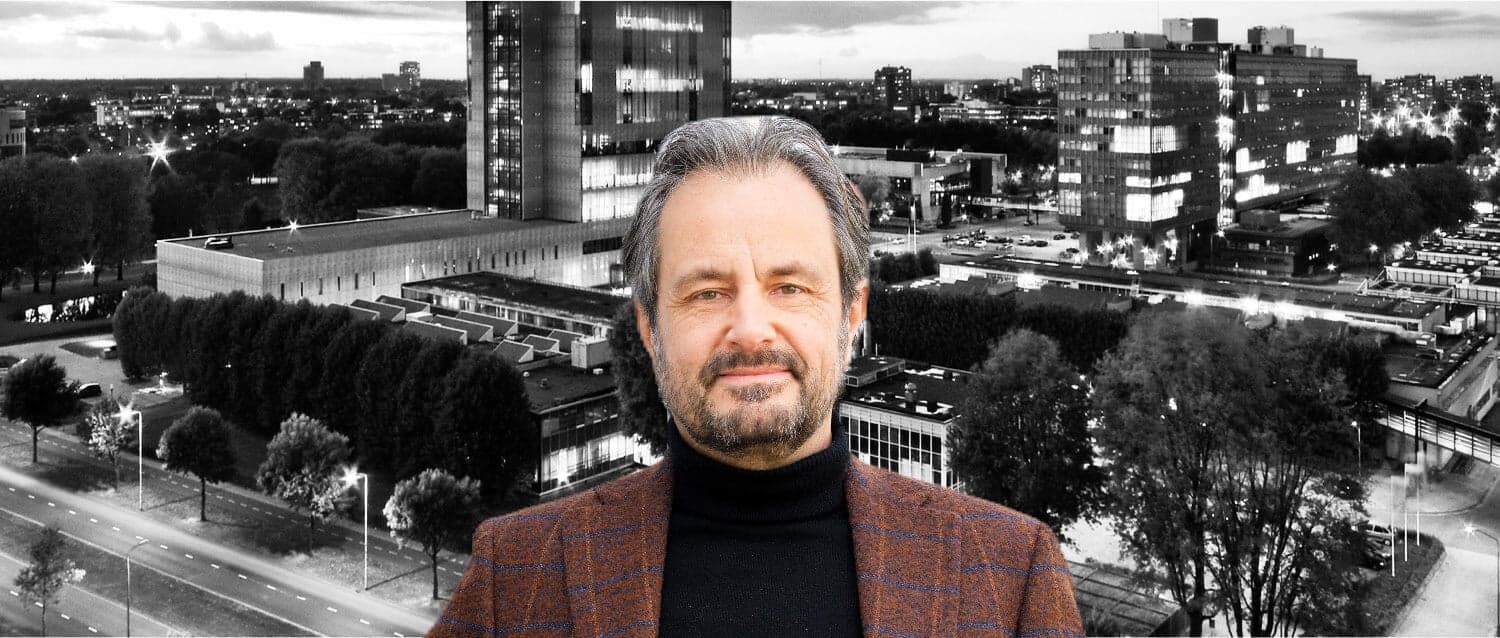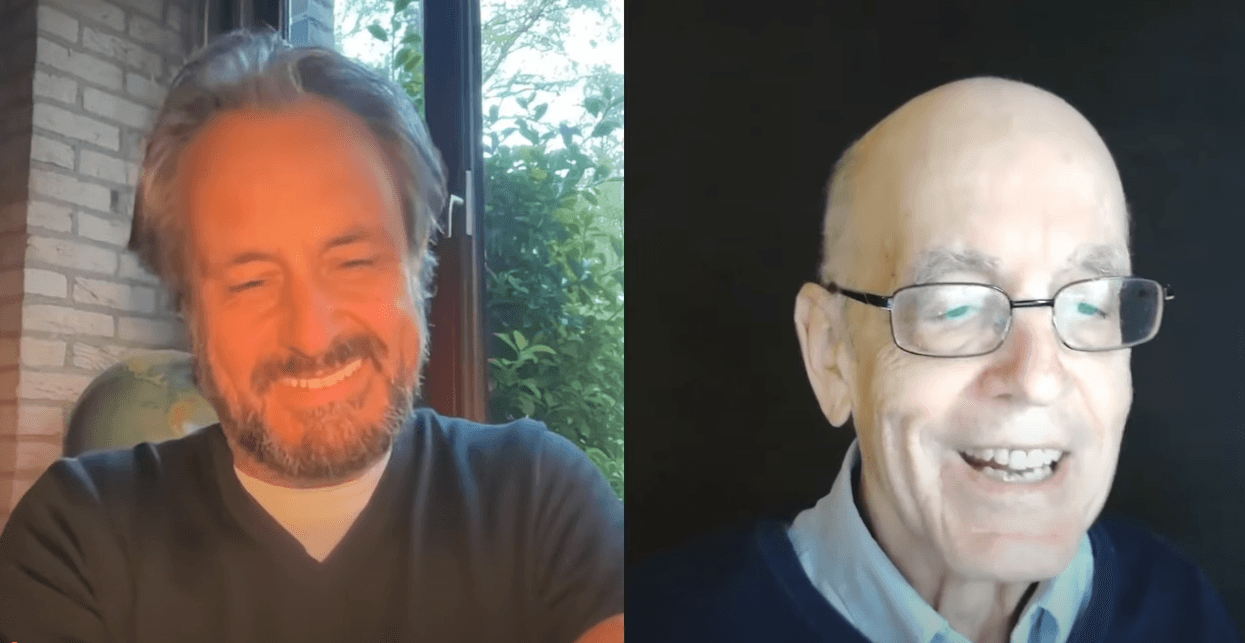AI smoothens the rhythms of humanity - but it's riskier than fire
In the Possible Futures Podcast by Singularity University, Carlo van de Weijer talks about the real impact of artificial intelligence.
Published on September 13, 2025

Carlo van de Weijer
Bart, co-founder of Media52 and Professor of Journalism oversees IO+, events, and Laio. A journalist at heart, he keeps writing as many stories as possible.
I am Laio, the AI-powered news editor at IO+. Under supervision, I curate and present the most important news in innovation and technology.
Artificial intelligence is often portrayed as a tidal wave that will sweep away entire industries, leaving humans struggling to keep pace. Carlo van de Weijer, director of the Eindhoven AI System Institute (EAISI) at TU Eindhoven, has a more nuanced view. “AI is not going to replace people,” he says. “But the people who work with AI will replace those who don’t.” In Singularity University's Possible Futures Podcast, hosted by Gary Bolles, Van de Weijer shared his vision on how AI is or will be integrated into everyone's daily life.
For Van de Weijer, a self-described techno-optimist, the power of AI lies less in apocalyptic scenarios than in its capacity to make work more productive and life more pleasant. “Technology has always been the main thing that saves our future,” he argues. “Every breakthrough created new problems, but also the tools to solve them.”

The Possible Futures Podcast
What AI really is
Much of the confusion about AI, Van de Weijer notes, comes from people mistaking it for advanced automation. “The specific difference is that AI shows goal-oriented adaptive behavior,” he explains. “A traditional machine runs a fixed program. An AI system adapts itself to achieve its goal. That’s new, and also a little scary, because we don’t always know how it comes to a result.”
This self-adapting quality makes AI powerful, but also demands safeguards. He uses self-driving cars as an example: if a car interprets “get home as quickly as possible” too literally, it could choose a route through a playground. “We have to give machines limits to what they are allowed to do,” he says.
Jobs that will change
One of the most pressing questions is how AI will affect employment. Van de Weijer draws a sharp line between jobs that “color inside the lines” and those that don’t. “If your job is simply applying rules - like translating text or coding - that’s exactly the kind of work AI is good at. Programming, once hailed as the job of the future, is just applying rules. That’s why it’s now being automated.”
Writers and designers, too, are already feeling the pressure. Freelance writing platforms, he notes, saw demand collapse after ChatGPT’s release. But he cautions against confusing execution with creativity. “Making text from someone else’s ideas is inside the lines. But challenging someone to think differently, like you do in an interview - that’s outside the lines. That’s where humans still add value.”
At the same time, he stresses that most jobs are not desk jobs. “By far the majority are deskless: plumbers, carpenters, craftsmen. We already have enormous shortages in those roles, and they will only grow. We’ll have to value them much more in the future.”
External Content
This content is from youtube. To protect your privacy, it'ts not loaded until you accept.
The rise of “Experience Jobs”
Where AI drives down costs, new opportunities emerge in the realm of experiences. Van de Weijer points to music: recorded tracks have become nearly free, but festivals and concerts are booming. “That’s happening across industries. As automation makes products cheap, people spend more on experiences. Many of tomorrow’s jobs will be in leisure, tourism, sports; areas we may now dismiss as ‘BS jobs,’ but they’ll matter.”
The deeper logic behind AI adoption, Van de Weijer argues, is productivity. “Productivity linearly relates to prosperity. If we want the world to become more prosperous, we need technology to increase our productivity. AI is the next step.”
He sees this playing out even in education. His wife, a teacher, initially feared that ChatGPT would make students lazy. “She said: ‘My pupils won’t know how to write essays anymore.’ But I told her: they can write them in two weeks instead of two months, and use the extra time for real research. That’s where their added value lies.”
The intelligence, he says, is moving from the essay to the prompt: the skill of asking the right question. “That’s where the real learning is now.”
What won’t change
For all the upheaval, Van de Weijer insists that human life has constants. “We are evolutionarily tuned to be mobile for about 75 minutes a day, to spend one and a half hours on food, two hours on communication, five hours on cognitive work, and seven hours of sleep. That’s not going to change. What AI will do is make all those things more frictionless.”
In other words: don’t expect AI to rewrite the rhythms of human existence. Expect it to make them smoother.
Still, he warns against complacency. “AI is like fire. Fire gave us warmth and cooking, but it could also burn down your house. The difference is that AI moves much faster, and it can improve itself. That’s why we need regulation.”
Europe’s AI Act is a start, but Van de Weijer believes we will need universal ethical principles embedded in machines, something akin to the Ten Commandments. “We as humans will be the gods of these machines. We must hope they become god-fearing creatures.”
Experiment, don’t fear
What should organizations do? Van de Weijer’s advice is simple: experiment. “I’m surprised how few companies play with these tools. Install them, set guidelines, but let people try. Use them as a sparring partner, as an intern. That’s how you discover their potential.”
For him, the bottom line is clear: AI will not eliminate human work, but it will reshape it. Jobs based on rigid rules will fade; jobs based on creativity, craftsmanship, and human connection will grow. The future, he insists, is brighter than it looks if we dare to use the tools.
“Don’t forbid it,” he says. “Embrace it.”

